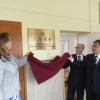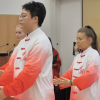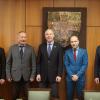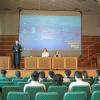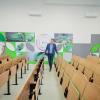Visit of the Israeli Ambassador to Hungary
2021
Nov
11
In order to explore the possibilities of cooperation and to identify the points of contact, His Excellency Yacov Hadas-Handelsman, Ambassador of the State of Israel to Hungary, visited the University of Pécs on 27 October at the invitation of Chancellor István Decsi. After visiting the Szentágothai János Research Centre, the diplomat met with the University's management at the Research Institute of Viticulture and Oenology, and then visited the 3D Printing and Visualisation Centre at the Faculty of Engineering and Informatics.
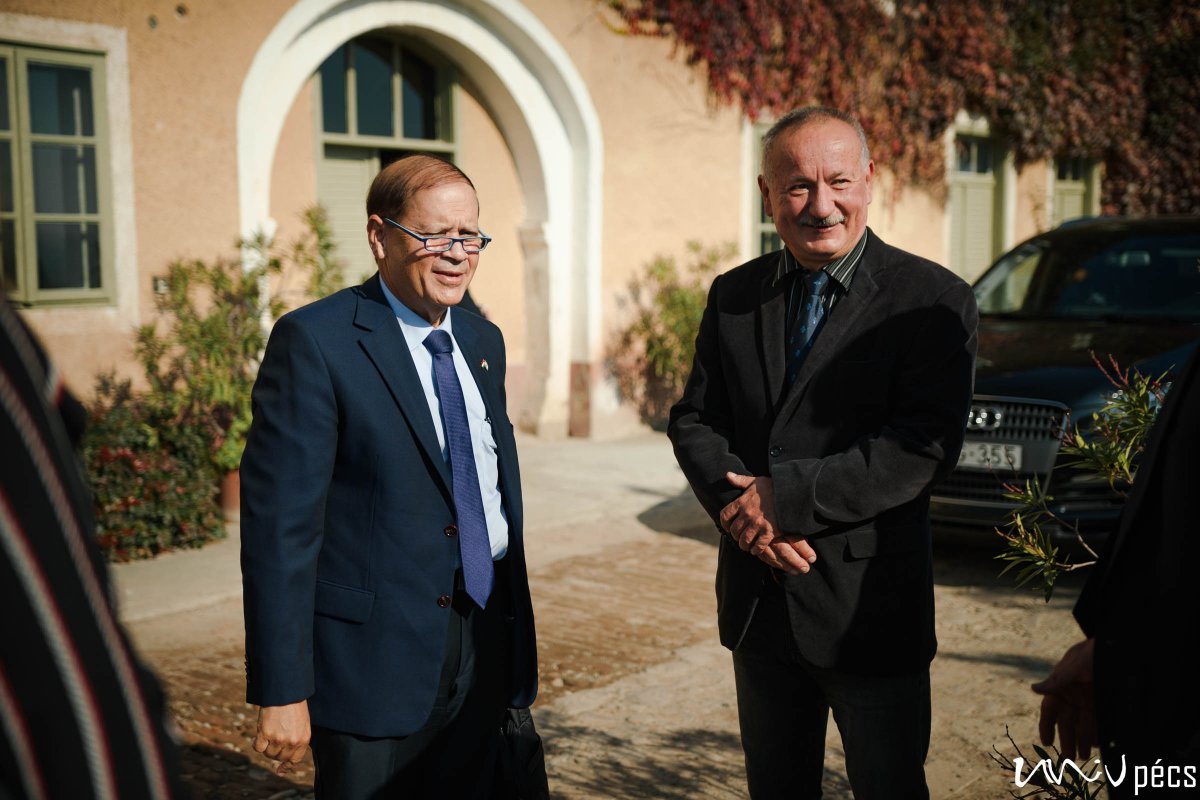
The diplomatic visit has been of particular importance for the University of Pécs, since Israel is a world leader in start-ups and innovations, and its academic performance is also outstanding, thus there are many potential opportunities for cooperation, which could be a good basis for the establishment of mutually beneficial and fruitful relations. His Excellency Ambassador Yacov Hadas-Handelsman first visited the Szentágothai János Research Centre, where dr. Zsuzsanna Helyes, Chairman of the Research Centre, presented the activities of the centre and the national laboratories, with a special focus on the opportunities for cooperation in research and innovation. "We moved into the building in 2012 and are already preparing for our tenth anniversary year by organising a number of scientific events.
We currently have 21 research groups working in the scientific flagship of UP, and we work closely with several faculties of the university to promote synergies,"
- the professor told us. Dr. Judit Pongrácz, director of the Department of Pharmaceutical Biotechnology at the Faculty of Pharmacy, reported on the launch of biotechnology training and preparations for a cooperation with an Israeli company.
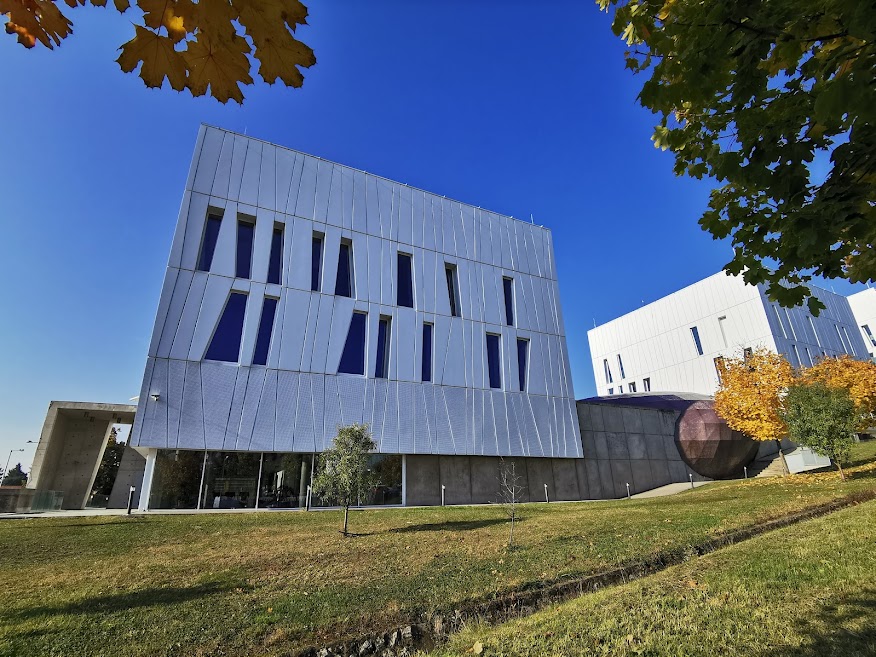
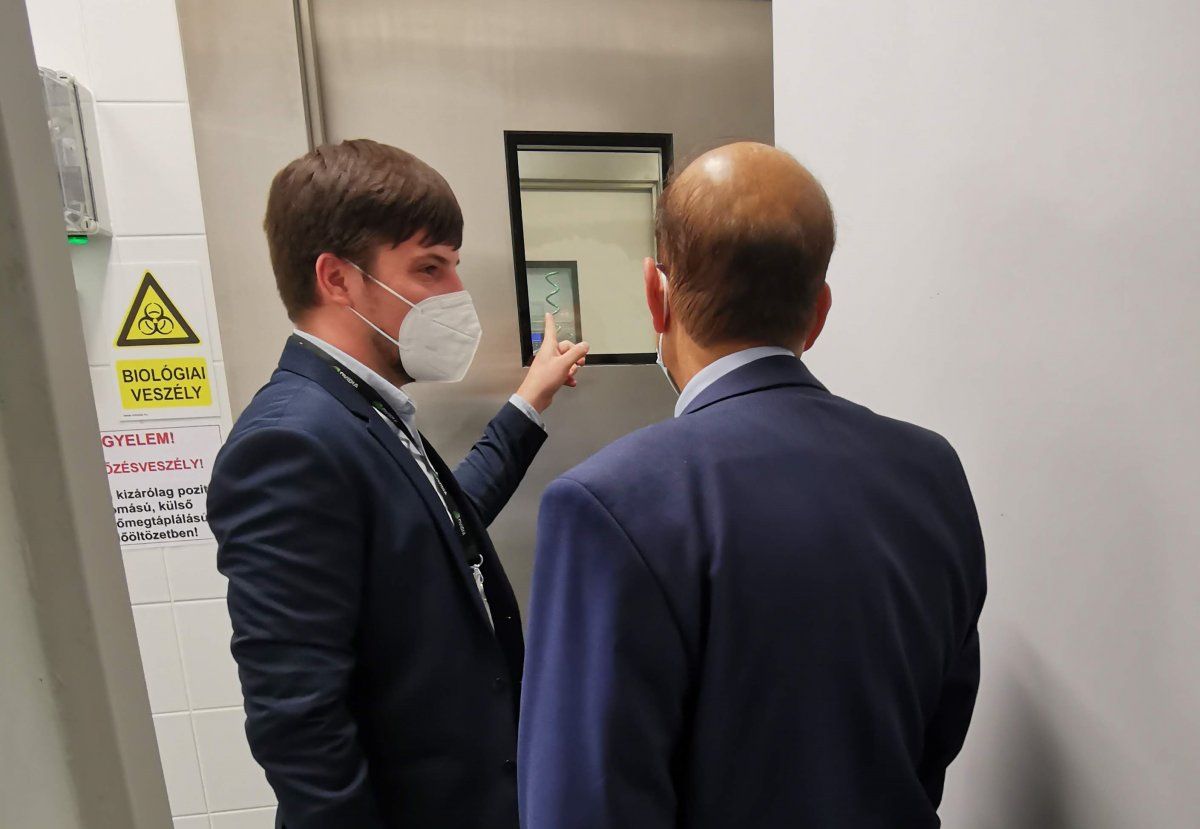 On the outstanding performance of the Virology National Laboratory in the fight against the coronavirus, the ambassador stressed the importance of preparedness, which has an impact on the economy and society as a whole. Led by Balázs Somogyi, H.E. Yacov Hadas-Handelsman also got acquainted with the work of the Virology Research Group, visited the laboratories, the BSL-4 level laboratory of course only from the outside, through several doors.
On the outstanding performance of the Virology National Laboratory in the fight against the coronavirus, the ambassador stressed the importance of preparedness, which has an impact on the economy and society as a whole. Led by Balázs Somogyi, H.E. Yacov Hadas-Handelsman also got acquainted with the work of the Virology Research Group, visited the laboratories, the BSL-4 level laboratory of course only from the outside, through several doors.
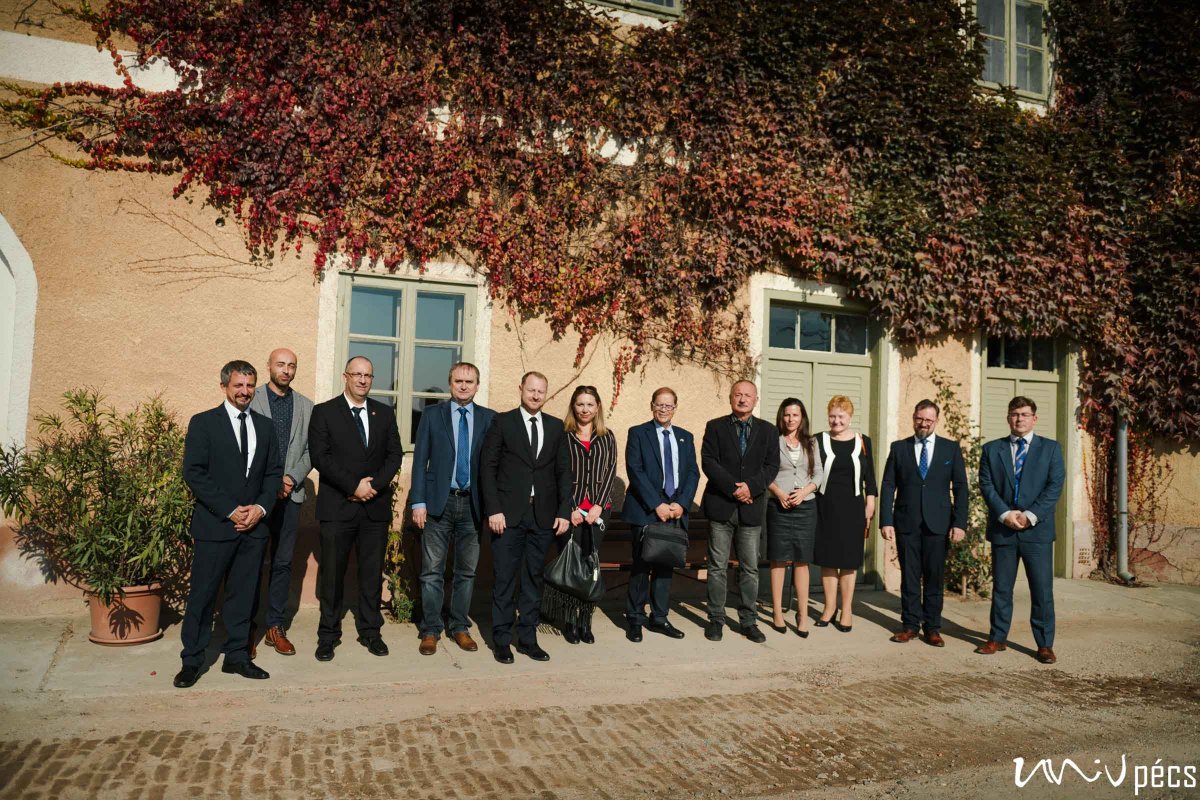
The Israeli Ambassador then visited the Research Institute of Viticulture and Oenology, where he met the university's management. Dr. Attila Miseta, Rector, in addition to presenting the values of the University, emphasized the harmonious relationship between the two countries.
"As a result of our internationalisation efforts, we have more than 5,000 international students from more than 110 countries. We are delighted to see that the number of Israeli students is also increasing: while in 2014, 30 students from Israel came to study Pécs, the number has now risen to 47. We would like to double that!"
– emphasized dr. István Tarrósy, director of the International Centre, summarizing the institution's efforts to attract students from abroad. The University of Pécs currently cooperates with three Israeli partner universities at the institutional level, including Ben Gurion University of the Negev in the fields of economics, psychology and natural sciences, and Oranim Academic College in the field of English linguistics.
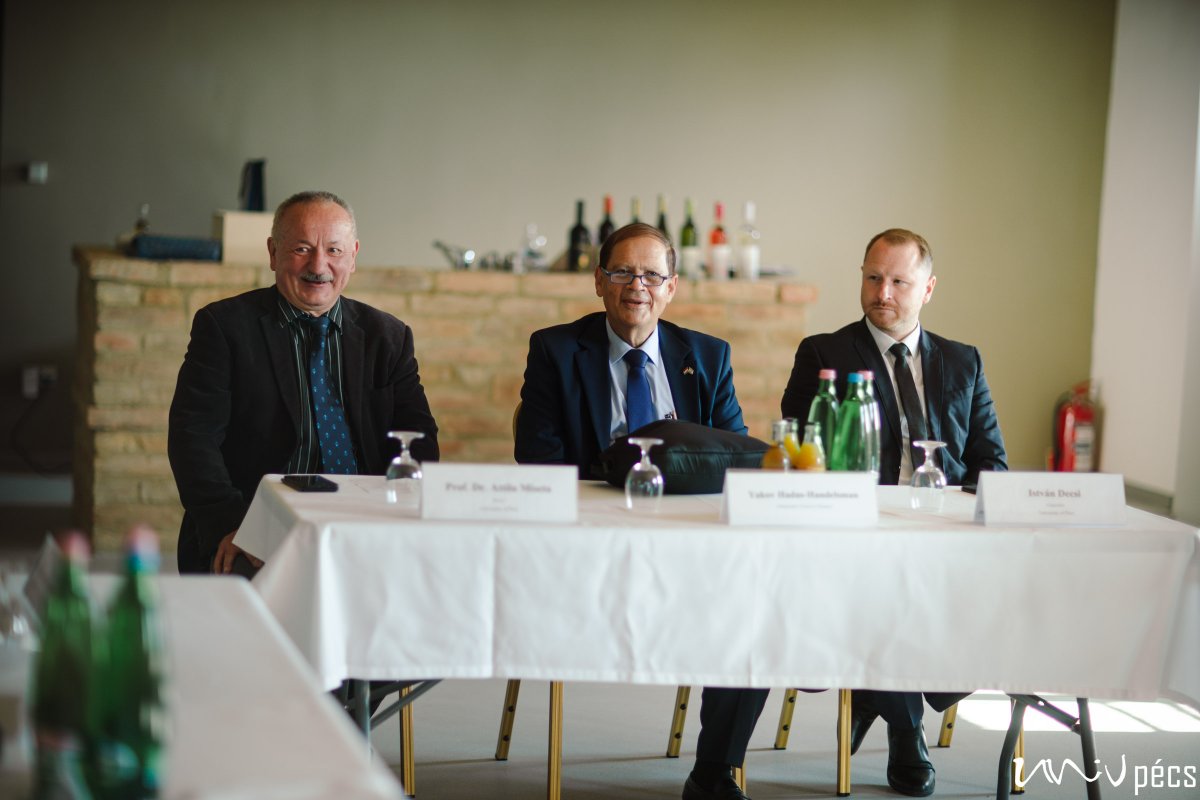
At the meeting, several faculties had the opportunity to introduce themselves: on behalf of the Faculty of Sciences, dr. Attila Horváth, dean, on behalf of the Faculty of Pharmacy, dr. Judit Pongrácz, director of the institute, and on behalf of the Medical School, dr. Miklós Nyitrai, dean, highlighted the successes achieved in the field of education and scientific research, and possible points of connection. After the brief introduction, the ambassador had the opportunity to get to know Hungary's first university even better during an informal discussion, with the help of dr. Gabriella Medvegy, dean of the Faculty of Engineering and Information Technology, dr. Attila Felinger, vice rector for science and innovation, and István Decsi, chancellor.
"I truly believe in cooperation, which can be mutually beneficial"
- said His Excellency Yacov Hadas-Handelsman, ambassador of the State of Israel to Hungary, and added: "Studying abroad gives life-long and wonderful experiences to those who undertake it."
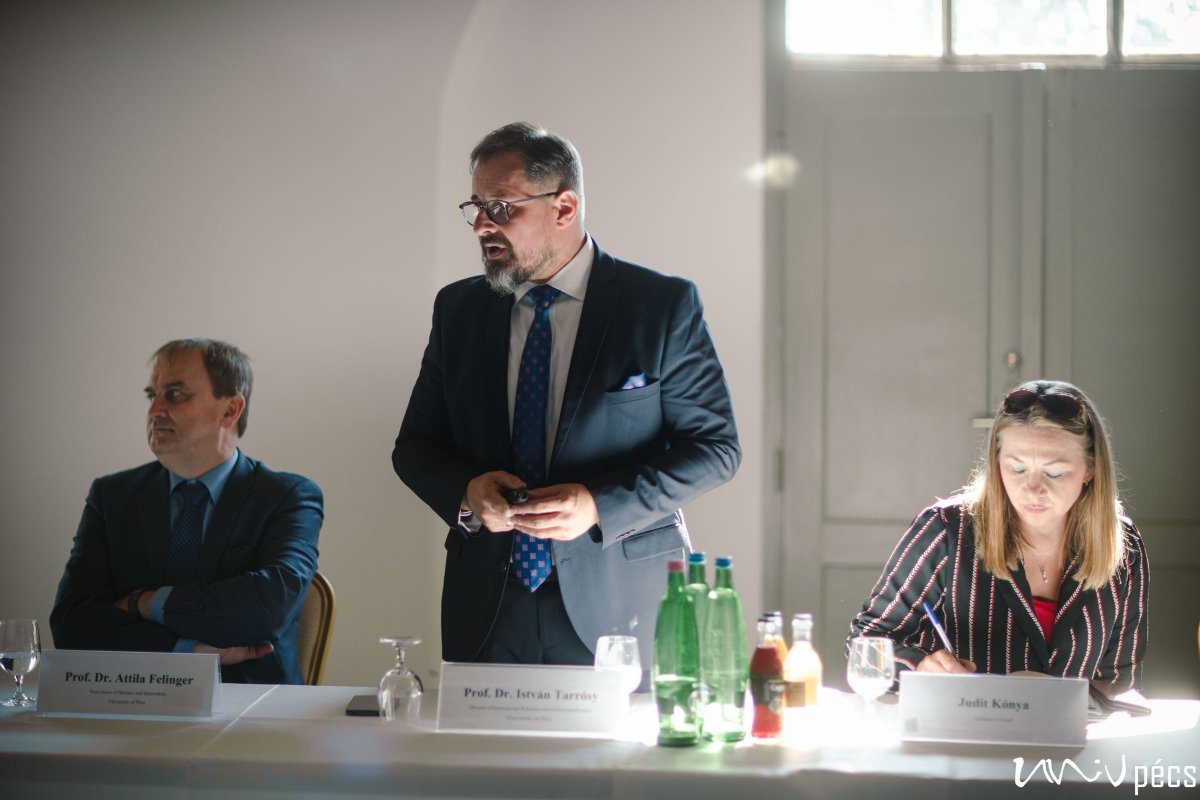
Dr. Péter Teszlák, director of research at the Research Institute of Viticulture and Oenology, and István Ipacs-Szabó, head of the Department for Wine Technology Development and Innovation, presented the work of the institute, focal points of research and the industrial cooperation opportunities in the recently completed, impressive event hall. The institute has been operating as a scientific workshop since 1949, based on a centuries-old church vineyard and winery. Its core activities of education, research and advisory services are carried out on thirty hectares of vineyards on the panoramic Szentmiklós Hill. It also has a unique gene bank of more than 1,500 lots and a vineyard, where indigenous grape varieties of the Carpathian Basin are cultivated. Clone selection and genetic research at the institute aim to create sustainable grape varieties that are resistant to diseases and at the same time produce high quality grapes.

The diplomatic delegation then visited the Faculty of Engineering and Information Technology, where dean dr. Gabriella Medvegy introduced the more than 50 years of the dynamically developing faculty's past, present and future plans with the help of spectacular data visualization tools. She highlighted the international efforts of the faculty, as in addition to the Regional Innovation Platforms aimed at enhancing international innovation competitiveness, the faculty is also welcoming more and more international students in the field of education, with an increasing number of fully English-language programmes from the basics to the PhD and DLA level.
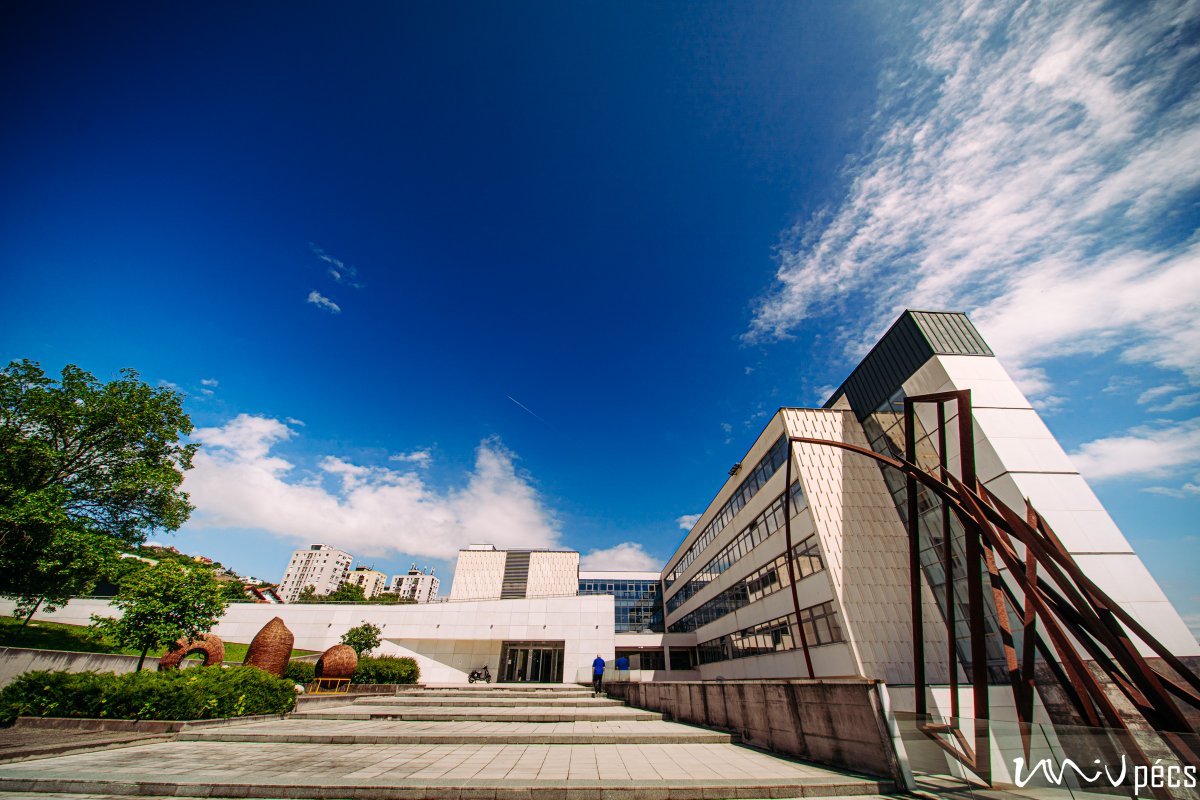
Dr. Ádám Schiffer, director of the Institute of Informatics and Electricity, shared the most important, innovative, multidisciplinary research projects, often conducted in cooperation with industrial partners, such as the Ember-Arm or the Re-walk exoskeleton. Then dr. Péter Kristóf, director of UP IT and Innovation Centre, highlighted the importance of the paradigm shift in recent years in his presentation focusing on TIP+TIP incubation and business development concepts. Dr. Zsolt Bedő emphasized the impact of the Cleantech Competence Centre, which combines the multidisciplinary expertise of the Faculty of Engineering and Information Technology, the Faculty of Business and Economics and the Faculty of Sciences, on regional and global economic processes, in addition to the organisation of Hackathons to boost innovation.
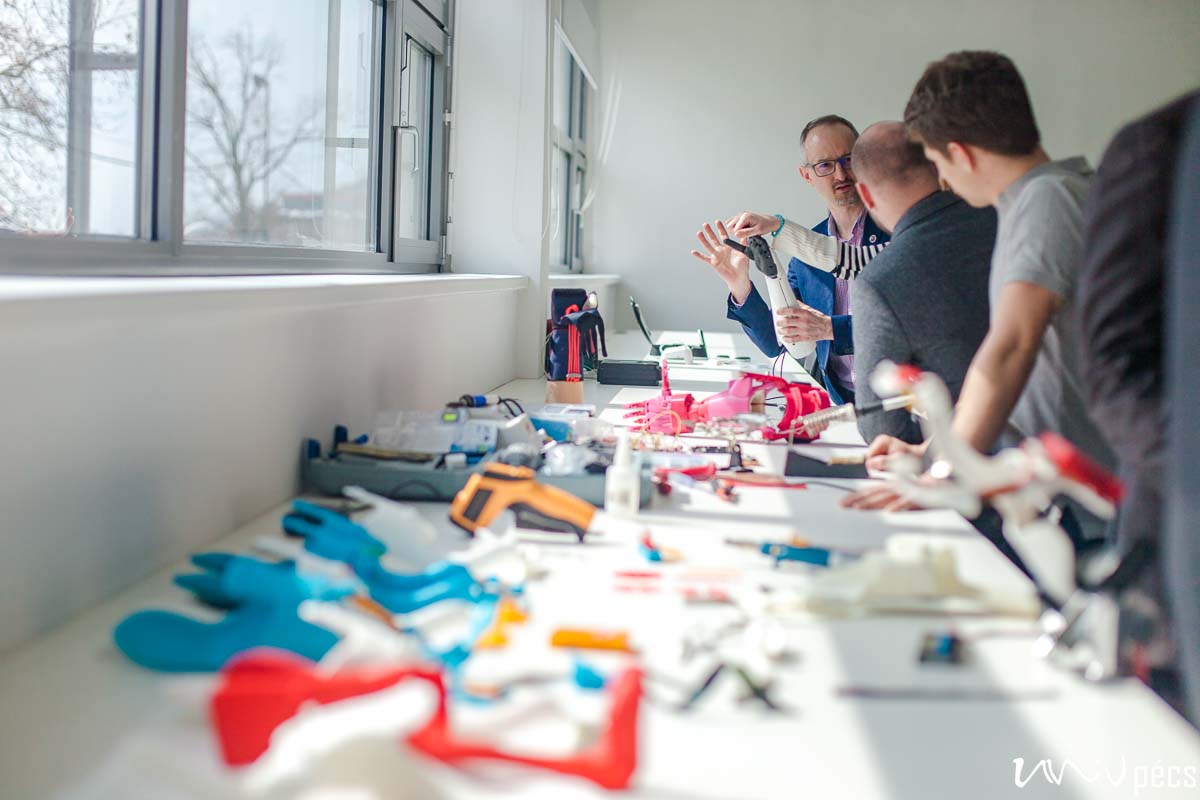
(3D Printing and Visualization Centre, March 2018. Photo: Szabolcs Csortos)
The Israeli Ambassador visited the 3D Printing and Visualization Centre as well, where the professional head of the centre, dr. Péter Maróti, presented the equipment, the research being carried out there, and summarized the centre's wide-ranging activities.
H.E. Yacov Hadas-Handelsman, Israel's Ambassador to Hungary, during his successful visit, received a comprehensive overview of the academic, research and innovation activities of the University of Pécs, exploring possible future connection points and cooperation opportunities that could lead to mutually beneficial agreements.
- Log in to post comments
University of Pécs | Chancellery | IT Directorate | Portal group - 2020.
